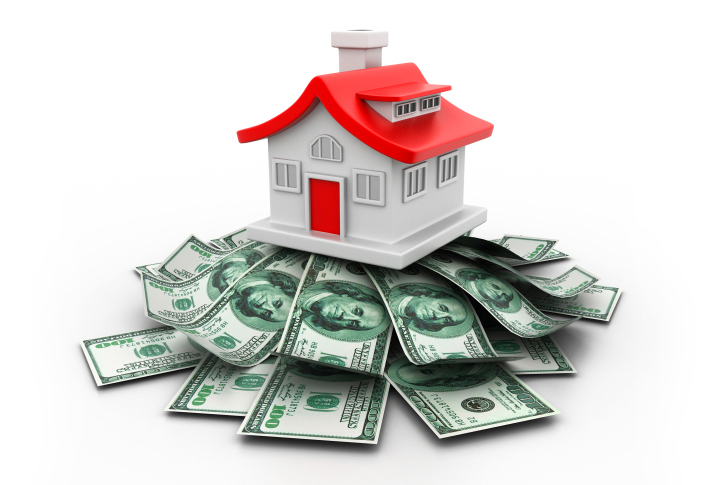 Starter homes are incredibly popular for young couples who plan to have a family in the future but don’t need a large place yet.
Starter homes are incredibly popular for young couples who plan to have a family in the future but don’t need a large place yet.
Life moves pretty fast sometimes and many couples find themselves expecting children before they have begun to look for the next home. This shouldn’t be a problem, as moving into a larger home before the baby arrives can be a lot easier than it appears.
Always Move Before The Baby Is Born
There is a choice when upgrading a home for children: moving beforehand and settling down in advance of having kids or waiting until after having the child and dealing with a move later on.
It may be tempting to wait until the stress of a pregnancy is over to move into a larger home. After all, selling and buying houses can be a tiring process for anybody, let alone expectant parents. Just remember, no matter how difficult or stressful the move is it will be one hundred times worse after having kids.
Work With A Professional To Help Coordinate The Move
There is nothing wrong with rushing through a purchase or the sale of a home, as long as everything is done correctly. A situation like this is never the right time to assume control and responsibility for every aspect of the move.
A real estate professional, once told of the situation, will know exactly how to handle everything. From preparing a current home for sale to finding a larger house in the right price range, a professional will have experience in coordinating the process.
Prepare For The Move In Stages
The best way to go about facilitating a quick move is to go in steps. Everything in the house that is not necessary to the staging should be boxed up and moved into temporary storage before the home is shown.
This is beneficial because it removes all clutter from the house and helps to make a quick sale and also allows for many personal items to be moved into the new house without having to wait for the current home’s sale to close. Instead of one gigantic move, the process can be broken down into several smaller moves to relieve some stress.
When there is a deadline on a move, you can increase your chances of selling your current home and buying a new one by using the services of a real estate professional. When things are done fast they need to be done right and a professional with experience can facilitate the entire process while making sure nothing slips through the cracks.
 One of the stresses of moving to a new area is giving up the familiarity that you have with your old neighbors and starting from scratch. Whether you’ve just moved to a different locale or you’re planning to relocate in the near future, there are some easy ways that you can make a home of your new neighborhood right from the start.
One of the stresses of moving to a new area is giving up the familiarity that you have with your old neighbors and starting from scratch. Whether you’ve just moved to a different locale or you’re planning to relocate in the near future, there are some easy ways that you can make a home of your new neighborhood right from the start. If you’ve been searching the real estate market for a while and you’ve finally come across a home that you love, it’s possible you may be ready to pounce at any price. However, if you’re hoping to bring the seller’s price down for a deal that’s closer to what you want to spend, here are some ways you may be able to have your home and pay the right price too.
If you’ve been searching the real estate market for a while and you’ve finally come across a home that you love, it’s possible you may be ready to pounce at any price. However, if you’re hoping to bring the seller’s price down for a deal that’s closer to what you want to spend, here are some ways you may be able to have your home and pay the right price too. The decision to invest in real estate can be one rife with risk, but if you’re ready to take this type of step into the investment market, you might be wondering where to begin. While upcoming neighborhoods and university areas may always be a place where investment is a viable idea, here are some reasons it can be a boon to consider a resort condo.
The decision to invest in real estate can be one rife with risk, but if you’re ready to take this type of step into the investment market, you might be wondering where to begin. While upcoming neighborhoods and university areas may always be a place where investment is a viable idea, here are some reasons it can be a boon to consider a resort condo. Bidding wars can be ugly, nasty things – but with the right tactics, you can come out a winner without having to double your offer. Welcome to basic training – today, you’ll learn how to navigate the obstacle course that is a real estate bidding war and come out on top. Put these three strategies to use and you’ll easily win the home of your dreams.
Bidding wars can be ugly, nasty things – but with the right tactics, you can come out a winner without having to double your offer. Welcome to basic training – today, you’ll learn how to navigate the obstacle course that is a real estate bidding war and come out on top. Put these three strategies to use and you’ll easily win the home of your dreams. When making the decision to purchase a home, there can be an array of questions to ask regarding location, size, style and additional features that will complicate things. If one of the considerations among these is whether to buy new or old, though, you may want to be aware of new home warranties. While buying new can seem like a risk, this type of warranty may help make at least one decision easy when it comes to your home purchase.
When making the decision to purchase a home, there can be an array of questions to ask regarding location, size, style and additional features that will complicate things. If one of the considerations among these is whether to buy new or old, though, you may want to be aware of new home warranties. While buying new can seem like a risk, this type of warranty may help make at least one decision easy when it comes to your home purchase. It might seem like selling a home and moving to a new place is enough pressure on its own, but buyer’s remorse is a well-known phrase for a reason. If you’re currently considering a home and are concerned about taking the plunge into purchasing, here are three strategies you will want to utilize before making a final decision.
It might seem like selling a home and moving to a new place is enough pressure on its own, but buyer’s remorse is a well-known phrase for a reason. If you’re currently considering a home and are concerned about taking the plunge into purchasing, here are three strategies you will want to utilize before making a final decision. With mortgage bubbles and real estate issues still in recent memory, one might feel that their best option is to buy their next home using cash instead of borrowing the necessary funds. In today’s article we’ll explore the pros and cons of paying cash for that next house or condo.
With mortgage bubbles and real estate issues still in recent memory, one might feel that their best option is to buy their next home using cash instead of borrowing the necessary funds. In today’s article we’ll explore the pros and cons of paying cash for that next house or condo. One of the most stressful parts of selling a home is the dreaded home inspection. Getting the most value from a home inspection is crucial, especially since any missed item can cause a significant amount of trouble a few years or decades down the road. With that in mind, let’s take a look at a few tips on how one can get the most value from a home inspection.
One of the most stressful parts of selling a home is the dreaded home inspection. Getting the most value from a home inspection is crucial, especially since any missed item can cause a significant amount of trouble a few years or decades down the road. With that in mind, let’s take a look at a few tips on how one can get the most value from a home inspection. You’ve found it: A large new home for your family. It’s in the area of the city that you love, with the perfect architectural style and lots of room for entertaining guests. It would have been perfect for you, but there’s only one problem – you’re not quite ready to pay the price the seller is asking for. You’ll have to put in an offer below the seller’s asking price – a risky move.
You’ve found it: A large new home for your family. It’s in the area of the city that you love, with the perfect architectural style and lots of room for entertaining guests. It would have been perfect for you, but there’s only one problem – you’re not quite ready to pay the price the seller is asking for. You’ll have to put in an offer below the seller’s asking price – a risky move.